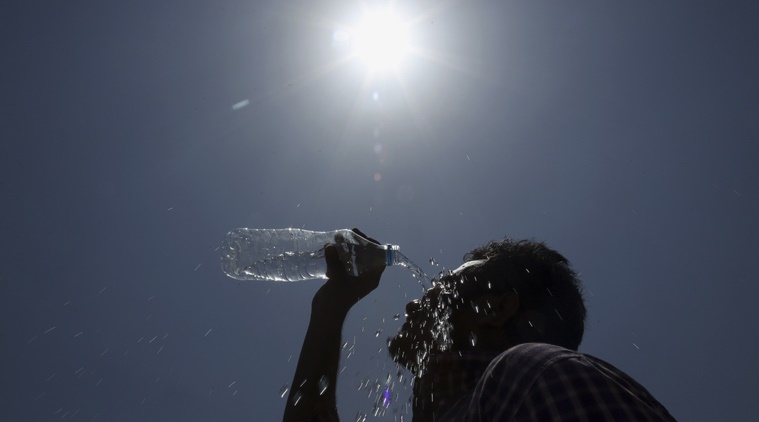
The Indian Express
Heat stroke deaths: Cities need to monitor all cause mortality, says expert
Extreme heat is a major health threat in the country. Symptoms of heat-related illnesses include vomiting, headaches, dehydration and diarrhea. This year, the challenge is acute, said Dr Mavalankar.
by Express News ServiceDr Dileep Mavalankar, director of the Indian Institute of Public Health, Gandhinagar (IIPH-G), on Thursday made a strong case for cities to closely monitor all cause mortality so as to understand how many deaths were due to heat strokes.
Dr Mavalankar was one of the speakers at a webinar on `Strengthening resilience to extreme weather events during Covid-19′, organised by NRDC, Climate Trends, along with the Administrative Staff College of India, IIPH-G and Mahila Housing SEWA Trust.
Extreme heat is a major health threat in the country. Symptoms of heat-related illnesses include vomiting, headaches, dehydration and diarrhea. This year, the challenge is acute, said Dr Mavalankar.
Homes for a large percentage of people living in slums and low income communities are far from optimal with few options for cooling and highly-compromised living conditions. For such households, social distancing is virtually impossible, he said.
The ongoing lockdown may cause added complications. For instance, there is stigma and fear towards availing medical services at the moment. This may lead to hesitance to reach for medical assistance, which could be dangerous for vulnerable individuals, Dr Mavalankar said.
He pointed out that ultimately, in order to build effectively resilient communities to counter these extreme weather events caused by climate change, there is a need to build localised capacity in terms of health infrastructure, governance structures as well as adequate early warning systems. It is important that actions as well as decisions be localised, to maximise public health benefits, he said.
Through the ground-breaking Ahmedabad Heat Action Plan, the city and partners have installed over 3,000 cool roofs. “We had the goal of 15,000 cool roofs this summer… the city and partner are continuing with heat alerts and community outreach, informing citizens to drink water, stay in the shade, and seek medical advice,” Dr Mavalankar added.
In her talk, Dr Kim Knowlton, senior scientist at Natural Resources Defence Council, said it was a huge challenge to simultaenously cope with extreme heat and Covid-19 – plus a cyclone and locust swarms.